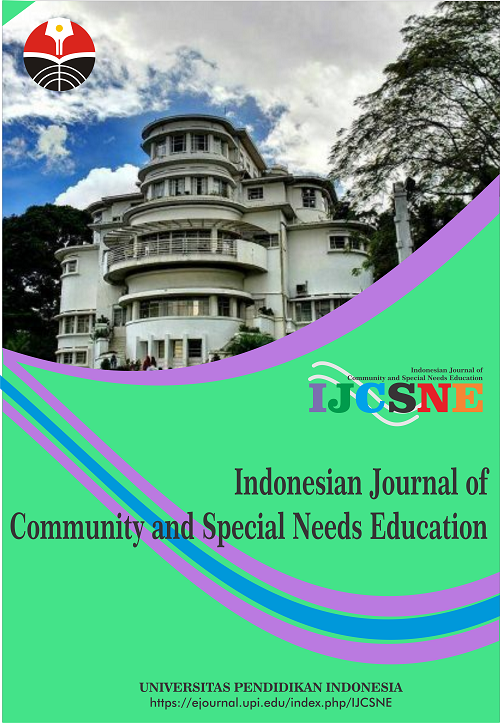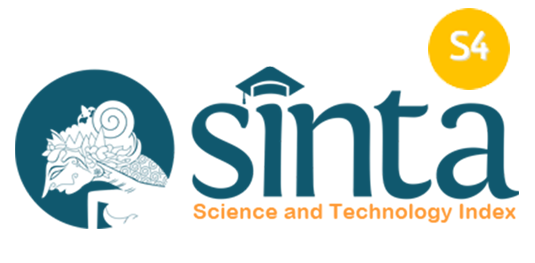A Systematic Review of Unplugged Pedagogy for Children with Autism Spectrum Disorder in K-12 Education
Abstract
Keywords
Full Text:
PDFReferences
Aranda, G., and Ferguson, J. P. (2018). Unplugged programming: The future of teaching computational thinking?. Pedagogika, 68(3), 279-292.
Demir, Ü. (2021). The effect of unplugged coding education for special education students on problem-solving skills. International Journal of Computer Science Education in Schools, 4(3), 3-30.
García-Avilés, J. A. (2020). Diffusion of innovation. The International Encyclopedia of Media Psychology, 1(8), 1-8.
Huang, W., and Looi, C. K. (2021). A critical review of literature on “unplugged” pedagogies in K-12 computer science and computational thinking education. Computer Science Education, 31(1), 83-111.
Kurnaz, E. (2025). Effectiveness of video self-modeling in teaching unplugged coding skills to children with autism spectrum disorders. Behavioral Sciences, 15(3), 272.
Li, F., Wang, X., He, X., Cheng, L., and Wang, Y. (2022). The effectiveness of unplugged activities and programming exercises in computational thinking education: A Meta-analysis. Education and Information Technologies, 27(6), 7993-8013.
Li, X., Alam, K. M., and Wang, S. (2018). Trend analysis of Pakistan railways based on industry life cycle theory. Journal of Advanced Transportation, 2018(1), 2670346.
Peltoniemi, M. (2011). Reviewing industry life‐cycle theory: Avenues for future research. International Journal of Management Reviews, 13(4), 349-375.
Sahin, I. (2006). Detailed review of Rogers' diffusion of innovations theory and educational technology-related studies based on Rogers' theory. Turkish Online Journal of Educational Technology-TOJET, 5(2), 14-23.
Saxena, A., Lo, C. K., Hew, K. F., and Wong, G. K. W. (2020). Designing unplugged and plugged activities to cultivate computational thinking: An exploratory study in early childhood education. The Asia-Pacific Education Researcher, 29(1), 55-66.
Shah, S. M., Elliott, C., and Nedungadi, P. (2024). Square pegs and round holes: Pedagogy for autistic students in computing education. IEEE Transactions on Education, 67(6), 919-930.
Sigayret, K., Tricot, A., and Blanc, N. (2022). Unplugged or plugged-in programming learning: A comparative experimental study. Computers and Education, 184, 104505.
DOI: https://doi.org/10.17509/ijcsne.v5i1.83190
Refbacks
- There are currently no refbacks.
Copyright (c) 2025 Universitas Pendidikan Indonesia

This work is licensed under a Creative Commons Attribution-ShareAlike 4.0 International License.















